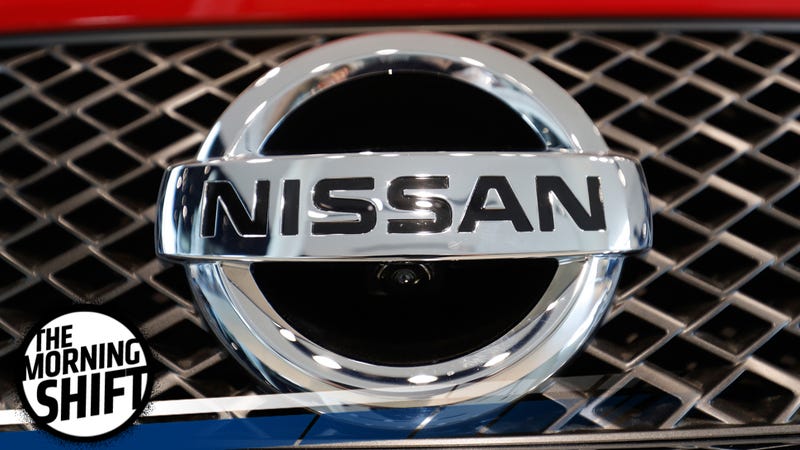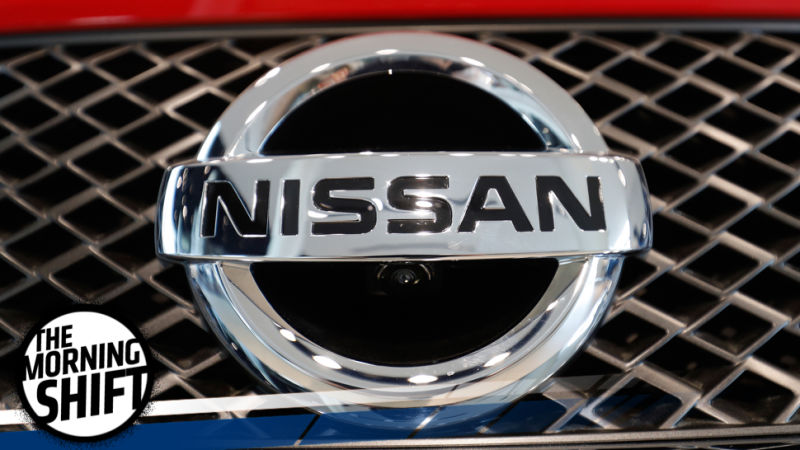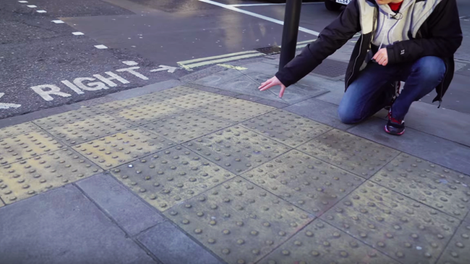
Good morning! Welcome to The Morning Shift, your roundup of the auto news you crave, all in one place every weekday morning. Here are the important stories you need to know.
Advertisement
1st Gear: Invincibility Will Have To Wait
You may have noticed that whenever we talk about Nissan in a global, corporate sense we always say “Nissan-Renault.” That’s because Nissan and Renault are, functionally, much the same company. Sort of. In effect. Not really? Kinda. It’s weird.
Advertisement
Allow me to explain. In a traditional corporate merger, one company buys another company. Boom, done, relatively simple. But for a variety of complicated reasons that we’ll return to in just a bit, that’s not what’s happened historically with Renault and Nissan. Instead of Nissan buying Renault or Renault buying Nissan, Renault and Nissan both bought huge stakes in each other.
Which is definitely not what normally happens in the automotive world, otherwise you’d be seeing the General Motors-Pontiac Alliance and maybe Oldsmobile would still exist.
(It wouldn’t.)
Renault and Nissan still have separate corporate boards and whatnot, but they share a CEO, Carlos Ghosn, who aspires to invincibility. At this point, you might be wondering why they don’t just get this all over with and formally merge the two companies, but Ghosn already has an answer for that, according to Reuters.
It’s France, which is the other major shareholder in Renault after Nissan, and which owns nearly 20 percent of the French company:
Advertisement
Sponsored
Ghosn, the chief executive of both carmakers, said the resulting stand-off over government voting rights had persuaded the Japanese carmaker that no further consolidation was possible while France continued to hold Renault shares.
“Following the soap opera of double voting rights and the discussion with the French state, Nissan has said very clearly … that it will not accept any move on capital structure as long as the French state remains a shareholder,” Ghosn told reporters and analysts.
[…] “The day the French state decides to get out, everything is open, and I can tell you it won’t take too much time,” Ghosn said. “But as long as they are in, and they want to continue to be a shareholder of Renault, the alliance will continue to move as it is.”
Too bad.
Advertisement
2nd Gear: Nissan Falling Flat With American Pickups
Speaking of Nissan, its pickup trucks are fine machines, I suppose, but they’re just not landing the way the company hoped in a landscape dominated by F-150s and Silverados, Bloomberg reports:
When Ghosn introduced the redesigned Titan pickup in January 2015, he said Nissan would reach 100,000 annual sales, and about 5 percent market share, within two years. Nissan sold 21,880 units last year and captured 1.8 percent of the U.S. full-size truck segment last month.
The sluggish sales so far can be chalked up to the slower than expected roll out of five variants of the Titan, said Fred Diaz, Nissan’s vice president of trucks and light commercial vehicles in North America.
Maybe it should try selling the Nissan Navara? Just spitballing here.
Advertisement
3rd Gear: No Fiat Toro For Us
Small pickups are great, and are Generally Beloved around these parts for their CHARACTER and SCRAP and HEART, qualities YA JUST DON’T GET ANYMORE. That’s why it was neat when Ralph Gilles, chief of design for FCA, said yesterday that “you’re going to be seeing more from Fiat on the truck side, especially.”
Advertisement
Immediately we descended into a delusional fever dream filled with Fiat Toros roving about the countryside, but now Gilles is throwing water all over that idea:
Darn!!!
Advertisement
4th Gear: Cars Will Be Bad Because Car Companies Are Bad
Speaking of Ralph Gilles, he gave a speech at the Chicago Auto Show, according to Automotive News, in which he said that we’re on the cusp of a new era of cars, in which things may be electric (or not) or autonomous (or not), and we’ll see how that all shakes out. But whether or not things head in one direction or another will depend on collaboration and investments in infrastructure.
Car companies are bad at collaborating with each other, and they’re even worse when dealing with infrastructure. Except for Tesla, none of them ever want to invest in it, because it’s always someone else’s problem.
Advertisement
Advertisement
Cars will be bad, because car companies will continue to be bad, as they always have been. This is fine.
5th Gear: The Head Of Mercedes Trucks Is Out
Mercedes might make AMGs and S-classes, but it’s also the biggest truck company in the world. Running all that might be enough for some people, but not for Wolfgang Bernhard, a German man with a very German name who runs the truck division, but who wants out, Reuters says. Apparently he was gunning for the top job at Mercedes, but some recent moves made that look unlikely:
Advertisement
Bernhard’s skills as a turnaround manager landed him top divisional jobs such as head of Mercedes-Benz cars, Chrysler and as CEO of the Volkswagen passenger car business in a wide ranging career in the auto industry.
But last year Daimler extended Zetsche’s contract by three years, a move that effectively ruled out Bernhard as a potential successor.
Bernhard will be close to 60 in 2019 when Daimler is due to choose its next chief executive.
It’s okay, Wolfgang. I’m not running Mercedes either. It’s fine. Have you tried blogging? Blogs are cool.
Reverse: Ralph Nader Testifies Before The Congress
Advertisement
Advertisement
On this day in 1966, Ralph Nader, a young lawyer and the author of the groundbreaking book “Unsafe at Any Speed: The Designed-In Dangers of the American Automobile,” testifies before Congress for the first time about unsafe practices in the auto industry.
Neutral: Why Won’t Car Companies Do The Obvious?
For electric cars to work, someone will have to invest in the infrastructure for them. Realizing that no one else would spend the money, Tesla ponied up for its Supercharger system of fast-charging stations. That was an extremely good idea. No one else will do it, even though every other car company says they want to build electric cars, which will very occasionally require fast-charging stations.
Advertisement
Why the hell won’t they invest in their own products? This continues to mystify me.
















